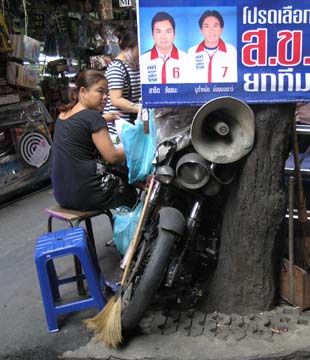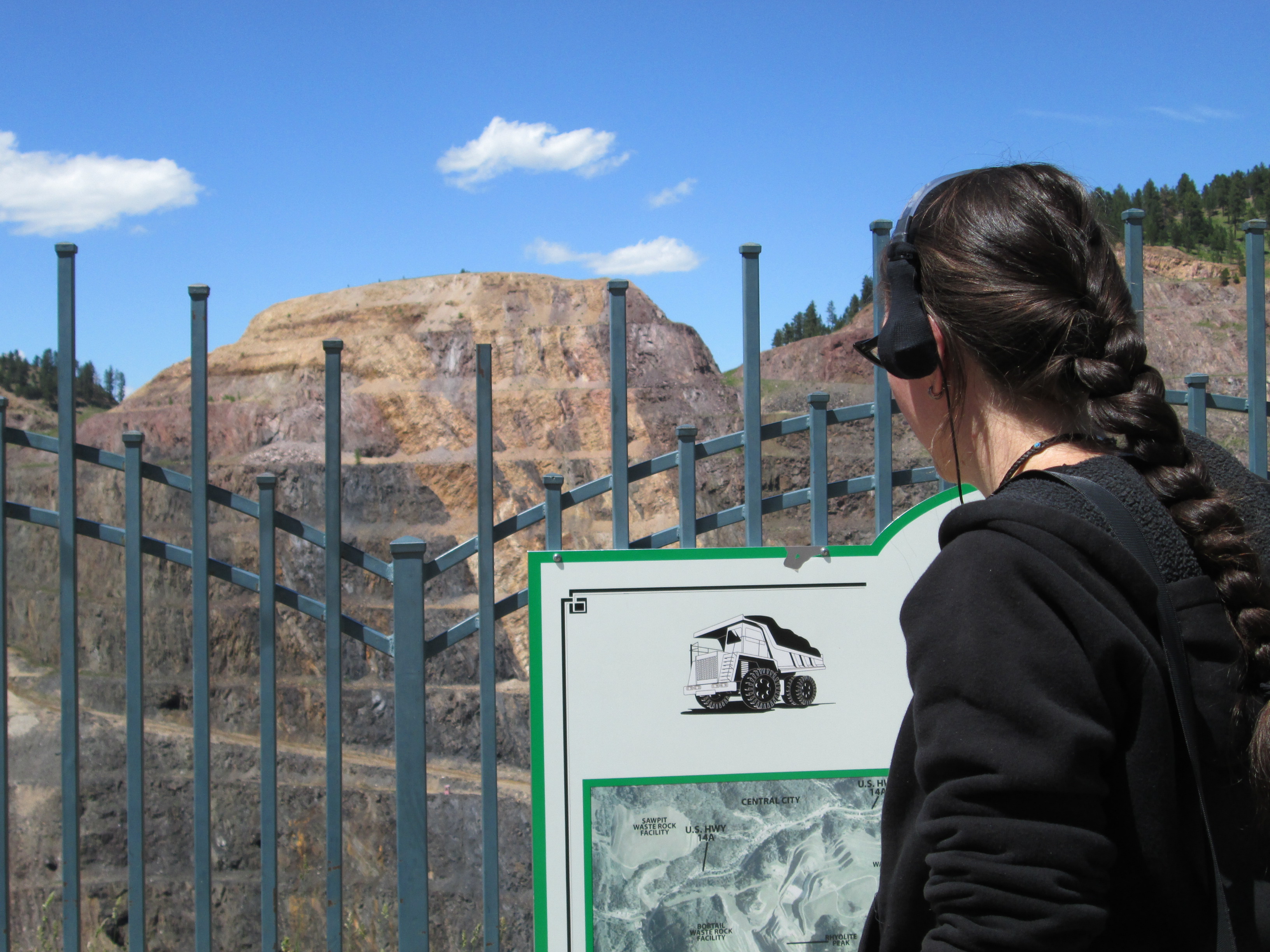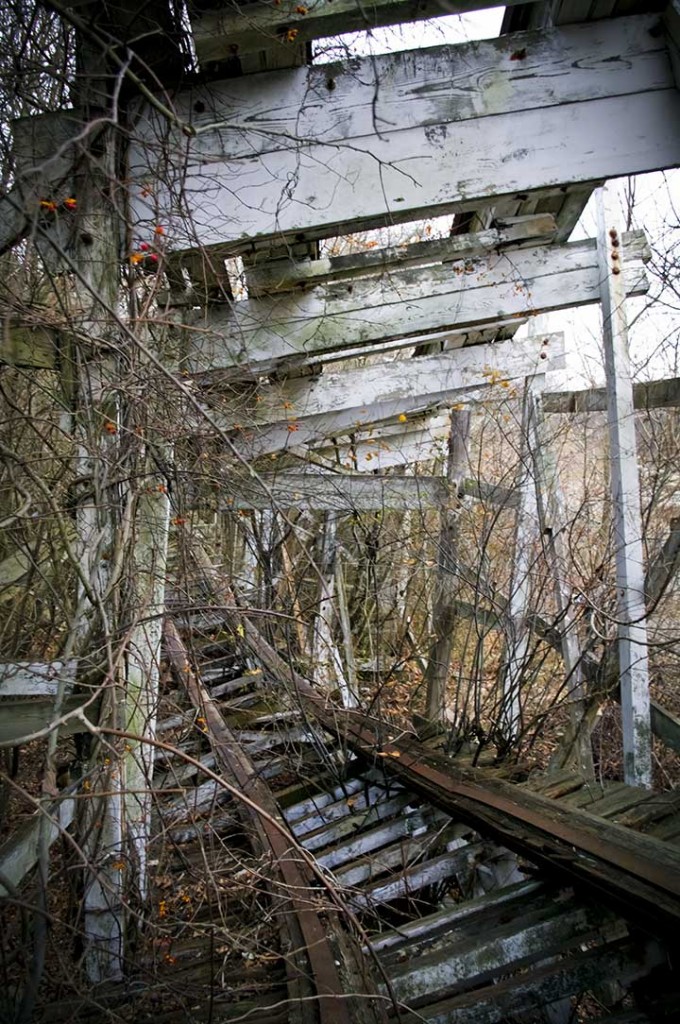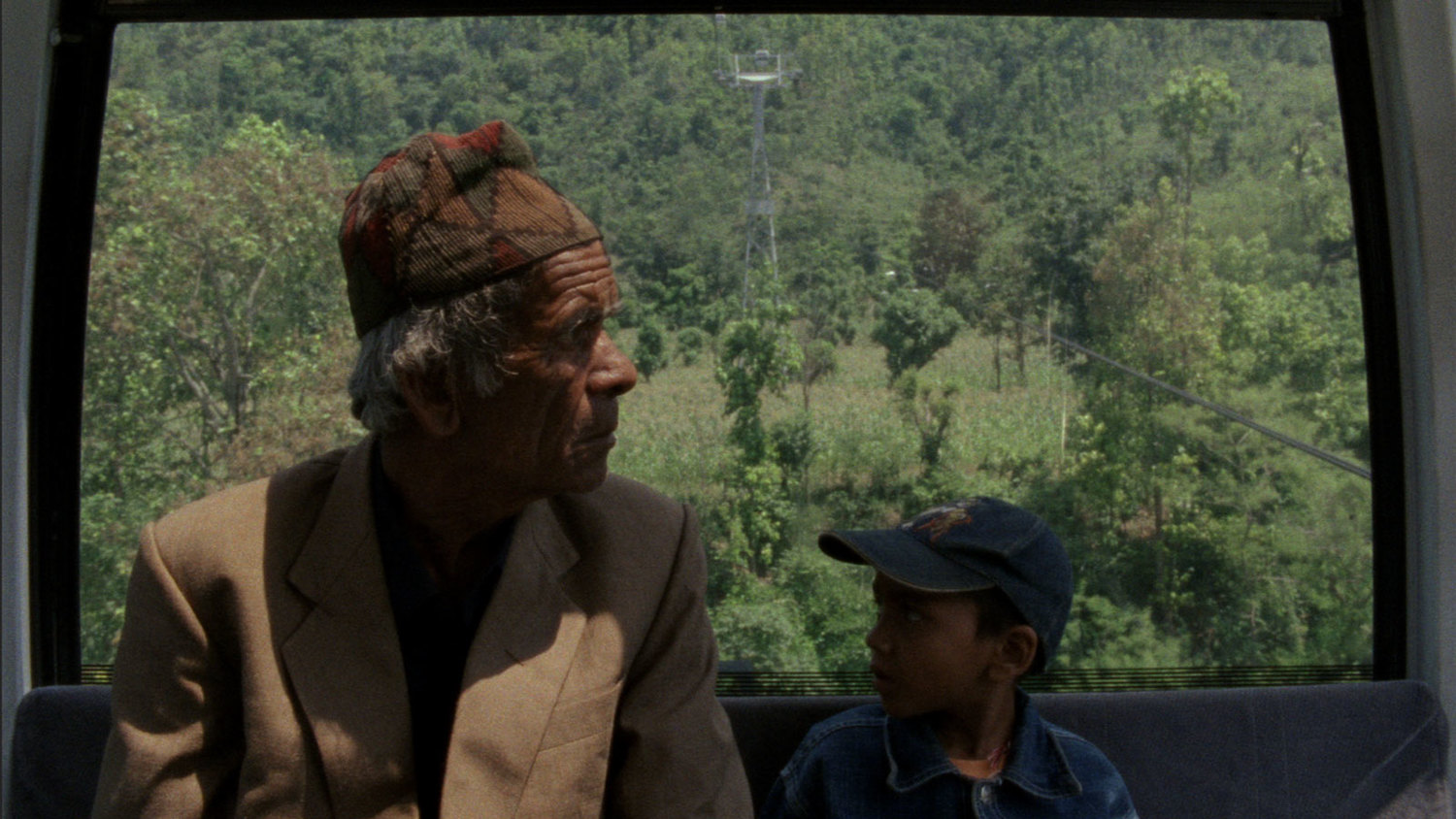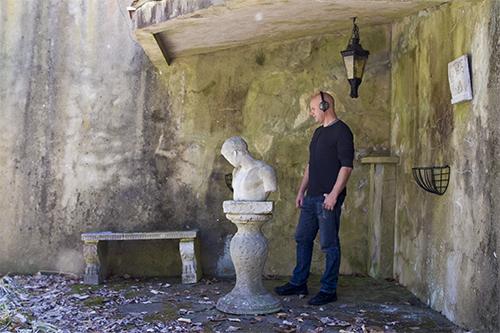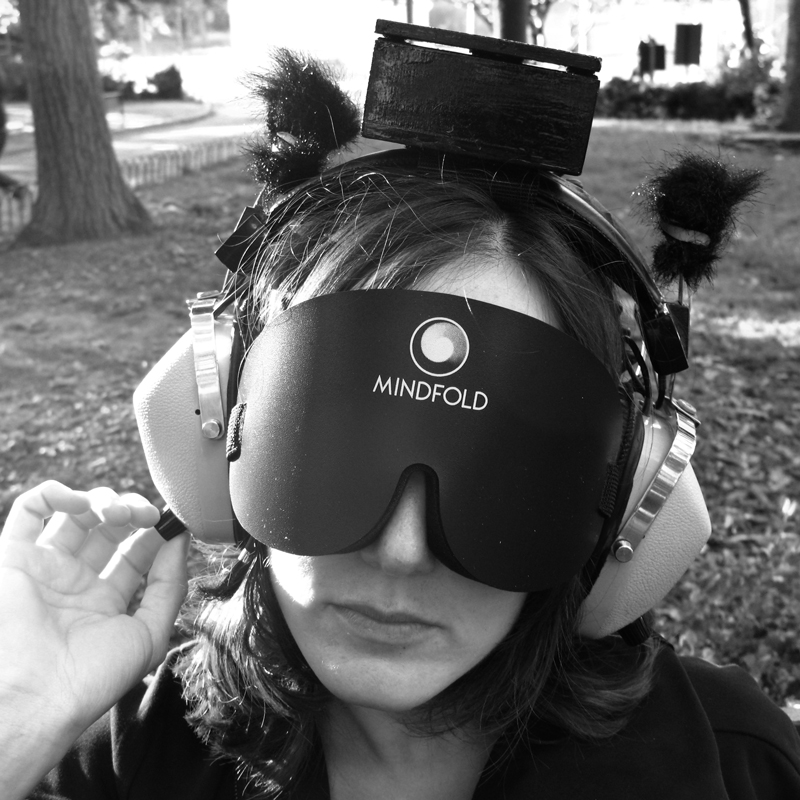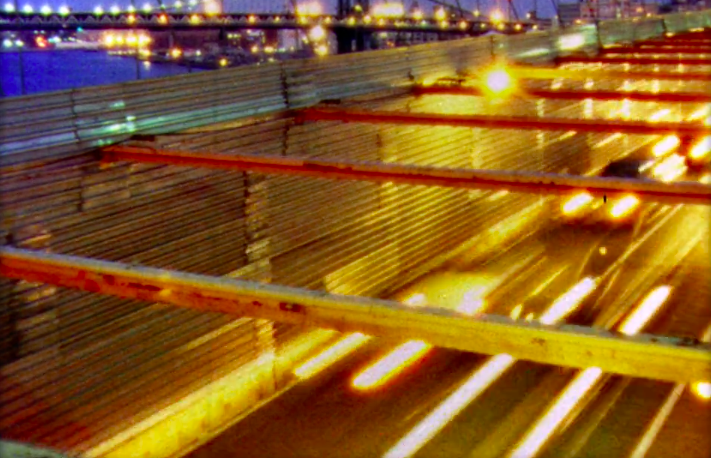This workshop is SOLD OUT. Please sign up for the waitlist below to receive updates regarding any openings or similar future opportunities.

- This event has passed.
Jul 28, 2017 at 10:00 am – Jul 30, 2017 at 5:00 pm
Sound Ethnographies
With Peter McMurray, Ben Tausig, Betsey Biggs, Andrew Littlejohn, Stephanie Spray, Jen Heuson, Kevin T. Allen & Myrna Ayoub
Oops! We could not locate your form.
This three-day intensive will immerse participants in using sound to understand and document the world. Through critical listening exercises, practical demonstrations, guest presentations, readings and discussions, participants will explore what sound is and what it does, learning to critically and ethically integrate sound recording and sound research into their artistic and scholarly practices. Over the course of the workshop, participants will develop a range of sound recording techniques and will learn to craft stories, arguments and artworks from recorded sounds.
Produced by UnionDocs in partnership with Jen Heuson and Peter McMurray, this intensive will introduce the practical methods and theoretical debates of sound ethnography to nonfiction media makers, artists and scholars. Participants will have the unique opportunity to develop skills and workshop current projects with guests working in a range of fields, including sound art, radio, music, film, anthropology and media studies.
Workshop topics will include: understanding sound basics; sound walking and mapping; field recording techniques; DIY microphone construction; sound editing; working with sound and image; developing stories and arguments with sound; engaging audiences in critical listening; noise and silence politics; soundscape study and sound heritage; and the ethics of sound recording. The workshop is designed to introduce participants to a range of approaches that include sound ethnography, acoustic ecology, archaeoacoustics, ethnomusicology, and aural heritage. Scholars and audiophiles of all types are encouraged to attend.
Sound ethnographer and ethnomusicologist Peter McMurray will lead the seminar as main instructor. Participants will have the opportunity to craft a sound ethnographic work of their own over the course of the three-day intensive.
Details
Open to everyone. We are looking for filmmakers, radio producers, phonographers, sound and media artists, anthropologists, museum curators and archivists and others interested in working with field recordings and sound-ethnographic methods. All lovers of sound welcome! Those with a desire to expand field recording techniques and to use sound recording for creative research and design encouraged to apply.
Give us an idea of who you are and why you are coming. Before the workshop begins, you will receive instructions to enroll in the course Google site. The site will include assignments to complete in advance of the workshop. You will also be asked for a short statement of interest that should briefly describe your sound-ethnographic experience and what you hope to learn from the workshop, plus a bio. There will be a spot to link to work samples (nice, but not required).
$295 early bird registration by July 21st at 5PM.
$350 regular registration.
The deposit is non-refundable. Should you need to cancel, you’ll receive half of your registration fee back until July 21st. After July 21st, the fee is non-refundable.
In order to keep costs down, this workshop is b-y-o-m, bring your own laptop. Recording equipment is not required, but iPhones or other handheld recording equipment is welcomed. Students must be fully proficient using and operating their own computers or other equipment.
To register for a workshop, students must pay in full via PayPal. Course fees are not refundable or transferable, and any withdrawals will result in the full cost of the class being forfeit. There will be no exceptions. To withdraw from a course please email info-at-uniondocs.org.
In the event that a workshop does not receive sufficient enrollment, it may be canceled. Students will be notified at least 48 hours prior to the start of a cancelled workshop and will be refunded within 5 business days. If we reschedule a workshop to another date, students are also entitled to a full refund. UnionDocs reserves the right to change instructors without prior notification, and to change class location and meeting times by up to an hour with 48 hours prior notice.
Schedule
Friday, July 28 – 10:00am - 5:00pm
An introduction to sound as ethnography
What is sound and how can it help us understand other peoples, places or things? The first day of the seminar will explore how we think about and document sound. Participants will be introduced to basic field recording techniques and sound study debates and will begin thinking about how to tell stories and share experiences through sound.
AM: Ben Tausig
In this session, we will discuss interpretive strategies for sound recording. Although acoustics is often given as the foundation for understanding sound’s nature, something different happens when we listen like anthropologists, listening for meaning first. But what can we do to tease out meaning? What strategies and methods can we use? Let’s find out together.
PM: Betsey Biggs
In this workshop, we’ll be thinking about how sound can function as both a wake-up call to presence and a siren call to the imagination, how we can position our work along the spectrum of presence and memory, knowledge and imagination, fact and fiction, and how sound and image might work with each other in interesting ways, particularly for site-specific works. Can we use sonic fiction and poetry to describe our own truth of a place? I’ll discuss how these questions have illuminated my own process creating site-specific headphone walks such as Almost Grand and Eleven Dreams in Red Hook, both located in Brooklyn, NY, and present both projects.
PM: Field recording practicum with Peter McMurray
OPTIONAL: A group field trip to THE WORLD IS SOUND at the Rubin Museum is planned for Friday night from 6-9PM.
Saturday, July 29 – 10:00a - 5:00p
Sound ethnographic methods
The second day of the intensive will delve deeper into the methods of sound study and documentation and will explore ethical questions related to sound recording, research and composition. Participants will be introduced to sound editing and will learn additional sound recording and critical listening techniques.
AM: Andrew Littlejohn
In this workshop, we will examine some of the recording, compositional and intertextual strategies deployed by artists working in non-fiction sound (including Francisco Lopez and Peter Cusack), exploring the degree to which different methods can enable what Steven Feld called an “acoustemological” approach to ethnographic sound composition. The central questions we will explore are: what might differentiate an “ethnographic” approach or sensibility from other forms of field recording, whether in the recording, composing, or presentation? What kind of relationships – to people and places – does it, or might it, entail? Finally, I will demonstrate how these questions relate to my own practice through presenting and discussing my latest work, Shizugawa, an ethnographic sound composition constructed from unprocessed 5.1 surround sound recordings made in the tsunami-hit coastal areas of northeast Japan.
PM: Stephanie Spray
What compositional logics or editorial strategies are at play in the construction of sound work? How are technical and aesthetic decisions balanced in the edit with geographic, ethnographic, or historical knowledge? In this workshop, we will consider how sound can ignite, challenge, and expand the webs of signification that may motivate us while editing or composing a piece. How does sound puncture or evade attempts at signification, opening for us other possibilities? We will think through these questions as we listen to samples of work by three sound artists (tba) and consider the approaches they employ while editing sound within each piece. How do compositional strategies convey an overarching philosophical or ideological position regarding the nature of sound itself within the scope of each project? We will conclude the workshop by listening to a track from my sound project Blue Sky, White River, composed entirely from sound recordings I made in Nepal during fieldwork.
PM: Sound editing practicum with Peter McMurray
Sunday, July 30 – 10:00a - 5:00p
Sharing sound ethnographic work
The final day will emphasize strategies for wider audience engagement, exploring how to share and compose sound ethnographic work for public contexts. Participants will be introduced to sound walking and mapping, expanded field recording techniques and how to craft artistic and scholarly works focused on recorded sound.
AM: Jen Heuson & Kevin T. Allen
A stone tape is a material object that has “recorded” the energy of a past event. Widely popularized by British author Nigel Kneale in his 1972 teleplay The Stone Tape, beliefs in the recording ability of objects and environments span the practices of heritage preservation, paranormal investigation, sound and media theory, and spiritual pilgrimage. But if materials do, in fact, record the past, how do contemporary encounters act as instances of playback? And, more importantly, how do makers shape these encounters through the tools and techniques they use? This class will take up stone tape theory as both a research method and a production practice by exploring how media makers can create works that engage moods and atmospheres in new ways.
PM: Peter McMurray and Myrna Ayoub
In this workshop, we explore soundmapping as a documentary, aesthetic and political practice, including pre-digital maps, web-based work and current projects of our own. We’ll consider several questions, including: how might soundmapping offer different forms of output than fixed-duration audio pieces? How does it fit into a longer history of creative cartography? What kind of power does such mapping entail and what are the ethics of that power?
PM: Sharing sound ethnographies practicum with Peter McMurray
Each day will follow this general schedule:
10:00a
Warm up with introductory questions + listening exercises
10:30a
Presentation by guest speaker + discussion
12:30p
Lunch (on your own)
1:30p
Presentation by guest speaker + discussion
3:30p
Hands-on practicum with lead instructor
5:00p
Wrap up with closing questions
Bios
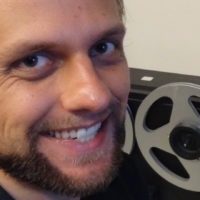
Peter McMurray is an ethnomusicologist, filmmaker and composer interested in the interface of sound and culture. As a Junior Fellow at the Harvard Society of Fellows, he is currently working on a book/media project on the sonic life of Islam in Turkish diasporic communities in Berlin. He has a longstanding interest in sound archives and the history of acoustics research. Other stray pursuits include improvised music, soundmapping, phonography, and collecting cheap toys that make sounds.
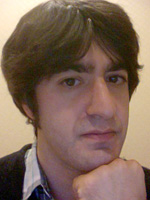
Benjamin Tausig’s research focuses on music, sound, and political protest in Bangkok, Thailand. With a particular emphasis on urban space, Tausig has given attention to the ways that genre and performance are adapted in contexts of political upheaval. He has published on the musical activity of the Thai military’s psychological operations unit, and on the lives and art of protest musicians, among other topics. Tausig’s interdisciplinary interests combine ethnomusicology, sound studies, and human geography. His dissertation, “Bangkok Is Ringing,” is a critical study of the music and broadcast environment of Thailand’s Red Shirt movement in 2010-11, during which time he conducted fieldwork in Bangkok and elsewhere. The dissertation tracks the fragmentation of the Red Shirt movement through its musical and sonic spatial ordering. Tausig’s work has appeared in the journals Culture, Theory, & Critique (in a special issue devoted to music and neoliberalism), Twentieth-Century Music, and Positions: Asia Critique. He has taught classes on urban soundscapes, the art of listening, and the elements of music at both the New School and NYU, where he received his Ph.D.
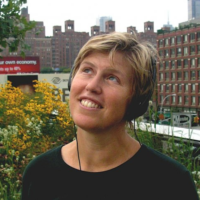
Betsey Biggs uses technology to combine image and sound in site-specific works, audiovisual performances, interactive installations, public interventions, relational projects, films and videos, musical compositions and multimedia theatrical works. Her body of work connects the dots between sound, music, visual art, place, storytelling and technology. It also deconstructs and arranges scraps of sound and image to clarify and recreate the experience of place, as well as adapting the technology of our contemporary world – mobile audio, digital video, interactive electronics – to engage people creatively with the physical and social worlds around them.
Her work has been presented at ISSUE Project Room, the Abrons Arts Center, Roulette, the Conflux Festival, MASSMoCA, Brown University, Harvard University, Sundance Film Festival, Hong Kong’s Videotage and on the streets of Oakland, CA and Brooklyn, NY. She has collaborated with Nick Hallett, Pamela Z, Luciano Chasso, Margaret Lancaster, Evidence, The Now Ensemble, The BSC, So Percussion, Tarab Cello Ensemble, the Nash Ensemble, Grand Valley State University New Music Ensemble and filmmakers Jennie Livingston and Amy Harrison. Her largest recent project, “Sunken Gardens”, a large outdoor sound installation for the Caramoor Center for Music and the Arts, employs induction loops to create eighteen fields of audio composed from musical and textual fragments inspired by the Jules Verne novel 20,000 Leagues Under the Sea. A new musical work, “Teewinot” is a sonic time lapse of the natural history of the Grand Teton mountains and will be premiered at several national parks in July 2016 by the Grand Valley State University New Music Ensemble.
Biggs earned degrees in English Literature and Music from Colorado College and Mills College respectively and a PhD in Music Composition from Princeton University. She has also held fellowships at Brown University and Harvard University. She has taught at Princeton, Brown and The Rhode Island School of Design.
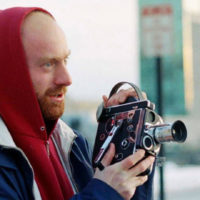
Andrew Littlejohn is an anthropologist, filmmaker, and phonographer whose work is situated at the intersection of ethnographic and artistic practices. Since 2012, he has been producing works of non-fiction media in the disaster regions of northeast Japan, where he has also conducted extensive ethnographic research on the post-tsunami recovery process. As a postdoctoral fellow at Harvard’s Program on U.S.-Japan Relations, he is revising this research for publication as a book while continuing work on a variety of non-fiction media projects in Japan and beyond. His creative work has been presented at festivals in the UK, US, and Southeast Asia.
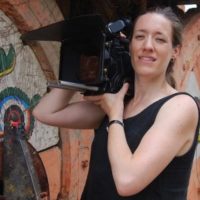
Stephanie Spray is a filmmaker, phonographer and anthropologist whose work explores social aesthetics and art in everyday life. She holds a PhD in Social Anthropology with Media from Harvard University, an MA in Religion from Harvard Divinity School and a BA in Religion from Smith College. Spray is also an affiliate at the Sensory Ethnography Lab at Harvard University, where she was a student and teacher.
Stephanie Spray’s research interests include visual and media anthropology; the interface between art, anthropology and cinema; the anthropology of science; climate change; religious studies; and phenomenology. She has worked extensively in Nepal since 1999, studying music, religion, and the arts of wandering and ‘getting by’ among a caste of itinerant musicians called the Gandharva—or the Gāine—with whom she made most of her films. In fall 2016 she is beginning production for a new film and sound project, Expedition 363, among scientists aboard the JOIDES Resolution, a scientific drilling ship in the Western Pacific Ocean.
Stephanie Spray’s creative work has been exhibited at the New York Film Festival, Toronto International Film Festival, San Francisco Film Festival, MoMA, The Whitney Biennial, CPH:DOX, Rotterdam, Vancouver, Edinburgh, AFI, Viennale, RIDM, True/False, Ann Arbor Film Festival, Anthology Film Archives, Harvard Film Archive, Art of the Real, among others. Her film MANAKAMANA (with Pacho Velez) won various awards, including two Leopards at the Locarno International Film Festival and first prize at BAFICI. Manohla Dargis, chief film critic of The New York Times, listed it as a best film of 2014.
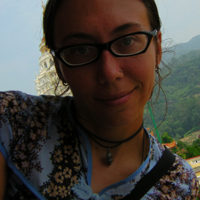
Jen Heuson is a scholar, filmmaker and sound ethnographer interested in the relationships between place, travel and sensory heritage. Her short films have screened at FLEX Fest, Big Muddy and the Margaret Mead Film & Video Festival. She has produced sound ethnographies of New York City and South Dakota’s Black Hills and has written articles for Contemporary Music Review and Ethnoscripts. Jen earned her PhD with distinction from the Department of Media, Culture and Communication at New York University in 2015. Jen is currently directing SOUNDING WESTERN, a film and community-engagement project about Lakota aural sovereignty and writing a science-fiction novel about stone tape theory in South Dakota. When she’s not at UnionDocs, Jen teaches film and media ethics at The New School and advocates for differently-abled children in Princeton, New Jersey.
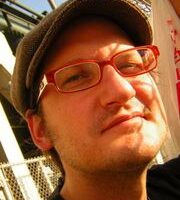
Kevin T. Allen is a filmmaker and sound artist who makes ethnographically imbued “sound-films” in Vietnam, Sri Lanka, India, Peru, Bolivia, Argentina, the Wild West, and the migrant farm worker community of Immokalee, Florida. Recent research leads him to find culture not exclusively in human forms, but also inherent within physical landscapes and material objects. His work is featured internationally at museums and festivals and is funded through the Jerome Foundation. He is an assistant professor of sound and filmmaking at The New School.
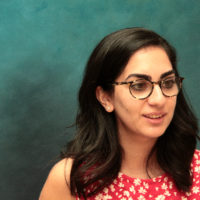
Myrna Ayoub is an architectural designer, researcher, and educator. She holds a Master in Architecture from the Harvard Graduate School of Design, where she was involved as a teaching assistant, research assistant, and curator in several publications and installations. Before pursuing her Master’s, she received her Bachelor of Architecture degree from the University of Southern California and practiced at several offices in Los Angeles, Paris, Doha and Beirut. Her work ranges in scale from architecture to public installations, product design, cartography, and research. Her projects involve themes of social and cultural dynamics within the public sphere, context and identity, craft and fabrication, and the culture of display and exhibition.


